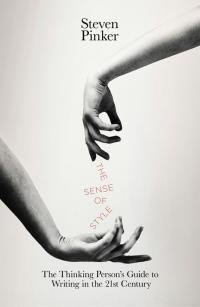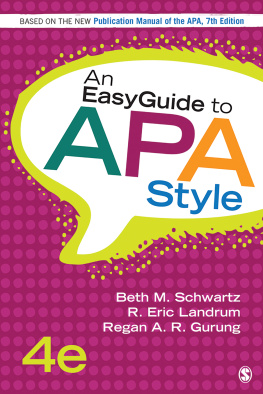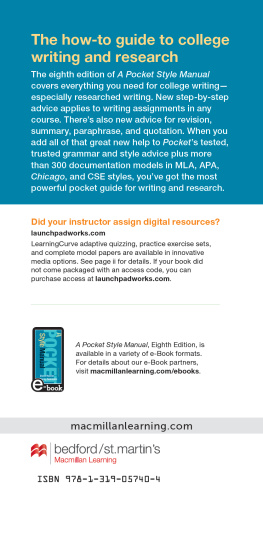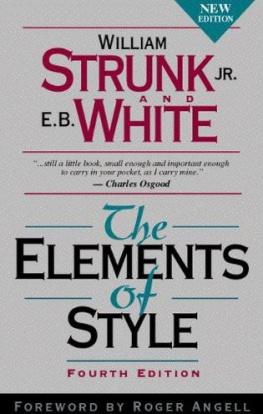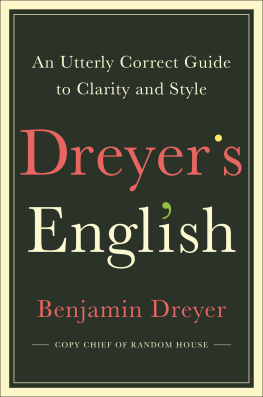STYLE
an Anti-Textbook
STYLE
an Anti-Textbook
Second Edition, Revised
Richard A. Lanham
First Paul Dry Books Edition, 2007
Paul Dry Books, Inc.
Philadelphia, Pennsylvania
www.pauldrybooks.com
Copyright 1974, 2007 Richard A. Lanham
All rights reserved
Text type: Minion
Display type: Trade Gothic
Composed by P. M. Gordon Associates
Designed by 21xdesign.com
1 3 5 7 9 8 6 4 2
Printed in the United States of America
Library of Congress Cataloging-in-Publication Data
Lanham, Richard A.
Style : an anti-textbook / Richard A. Lanham. 2nd ed., rev., 1st Paul Dry Books ed.
p. cm.
Revised ed of: 1st ed. New Haven : Yale University Press, 1974.
Includes bibliographical references.
ISBN-13: 978-1-58988-032-0 (pbk. : alk. paper)
ISBN-10: 1-58988-032-3 (pbk. : alk. paper)
1. English languageStyle. 2. Prose literatureTechnique.
I. Title.
PE1421.L3 2007
808'.042dc22
2007013845
ISBN-13: 978-1-58988-032-0
ISBN-10: 1-58988-032-3
Once Again, For Carol
And the things thought essential to a textbookimpersonality, numbered and labeled paragraphs, an obvious style, test questions at the end of the chapterare they not death? The Dark Ages, it seems, was a time when people read textbooks and thought they were literature.
Charles Horton Cooley, Life and the Student
Contents
I T TAKES SOME temerity to publish, in a new edition, a book written more than thirty years ago. It takes even more if, as is the case here, the book argues for pleasure in writing and speech. Pleasure in words does not occupy a dominant place in the contemporary panoply of pleasures. In my own defense, I can say only that I think it should and that my attempts to argue the case in this book are as needed now as they were when I first wrote it. Indeed, were I to write it again, Id write it just the same way, and so Ive left it pretty much as it was. I think the second edition of the book gains strength this way, for readers can judge for themselves whether, in hindsight, its basic arguments remain pertinent and sound. But the discussion does need bringing into the present tense, and Ive tried to do this in a series of comments, called Afterthoughts, which Ive appended to each chapter. Ive also made a few minor changes, bringing the pronouns into current gender correctness, blunting a few too-sharp expressions, and revising the Bibliographical Note into Notes for Further Reading. In the Sequels, I treat myselfand I hope the readerto a few general reflections.
To introduce the book to new readers, though, let me preface it with a couple of stories. They tell you where this book came from, how this particular leopard got its spots.
Story #1. An offer I had to refuse.
I WAS SITTING in my office at UCLA one sunny spring day when an unexpected visitor knocked on my door. He was a senior editor of a major composition textbook publisher, and he told me that he had heard I spent a lot of time reading student writing and that I was a demon, if not demonized, commentator thereon. Was this true? I confessed it. Would I then possibly be interested in producing a new edition of this publishers mainstream Freshman Composition text? Everyone has his price, were told. I had not thought of what my price might be for such an activity, but it was certainly less than the sum mentioned by the senior editor as a possible reward. My wife and I had just bought a house, a not inconsequential act in Los Angeles. I promised to give the matter serious thought, and I did. I went down the hall to the composition directors office and asked him for an armful of the most popular handbooks (as texts of this sort are usually called), including the one in question.
I read them. I then wrote the senior editor a letter telling him that I could not undertake the work. It was not that I felt it beneath me nor, for certain, that I didnt need the money. It was that I found these books excruciatingly boring. I knew that, as soon as I started work, I would start making jokes and, worse yet, these jokes would reflect my conviction that the theoretical basis of the books was wrongor, to wrap the matter up more tactfully, seriously incomplete. I couldnt do this job for the same reason I couldnt sing the soprano lead in La Traviata. I just didnt have it in me.
My letter, however, was not written in a judicious frame of mind. I waxed satirical and ironical about how and why I thought that these books, which I had come to think of as The Books, were so misguided and therefore so boring. I made jokes about this. A reply soon arrived. I no longer have it in my files, but in paraphrase it went: I much enjoyed your letter and passed it around the office and everybody else enjoyed it too. Why dont you write a book like that? Wed like to see it.
That summer, I wrote it and sent it off. It came right back with a reply that I must again give in recollected paraphrase: We enjoyed your manuscript very much, but we could never publish anything like that! It would offend too many people in the composition world. I then fell back on a friendship and sent it to the director of Yale University Press. Would Yale be interested? They were. One publication committee member remarked, after they had voted thumbs up for publishing it, Its not a textbook, its an anti-textbook, and thats how this book got its name.
Story #2. Look it up in the index to Sister Miriam!
I N MY FIRST YEAR of graduate school, I found my professors using Latin and Greek terms I had never heard of to describe verbal patterns. Words like isocolon and zeugma and homoioteleuton. When I asked more seasoned students what these words meant, I was always told, Look it up in the index to Sister Miriam. This enticing advice pointed toward a book titled Shakespeares Use of the Arts of Language, by Sister Miriam Joseph, C.S.C. It was an eye-opener. Maybe, for me and in retrospect, the eye-opener.
What I found there showed me a new way to read Shakespeare, and indeed all of literature. I saw not the customary Shakespeare of profundities, moral and political, but a Shakespeare infatuated with language and playing wild games with it just for fun, creating characters who would never say I dont like it when they could say It is most retrograde to my desire. Sister Miriams analysis of Shakespeares language also planted in my mind, though the tree did not grow until later, a different way to teach prose composition, a way which emphasized pleasure rather than duty, which allowed words to escape from the penalty box and get back to skating. Out of that effort grew the present book.
Los Angeles, 2007
A WORD ABOUT subject and audience. This book seeks to provide both a preface to the study of prose composition and a context for it. It argues that the premises from which the study of composition now departsclarity, plainness, sincerityare incomplete and seriously misleading. It suggests alternative premises and an alternative pedagogy, and is thus about both prose style and the teaching of prose style, addressed to both student and teacher. It also suggests that the study of style has objectives more profound, and more enjoyable, than simply the faithful and useful communication of concepts. It seeks to supply, that is, new purposes for stylistic study as well as new premises.


